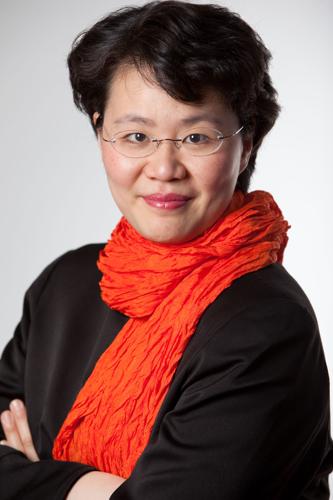Tucson Symphony Orchestra is taking us to a galaxy far, far away this weekend.
The orchestra is mounting “The Planets On the Big Screen,” an adaptation of Adrian M. Wyard’s multimedia concert “The Planets Live” centered around Gustav Holst’s 100-year-old masterwork “The Planets.”
Guest conductor Mei-Ann Chen, music director of the Memphis Symphony and of the Chicago Sinfonietta, returns to the podium for her third time in Tucson for two performances: Friday, Oct. 21, and Sunday, Oct. 23.
Chen was here in April conducting the TSO’s season finale.
Here are five reasons “The Planets On the Big Screen” might be the biggest thing TSO does this season:
Watch the planets come alive: The concert combines the live orchestra experience with multimedia visuals triggered by a computer program that marries what you see with what you hear, beat for beat. The visuals include original animation interspersed with images, video and computer modeling from a variety of research of the cosmos done by universities around the country. A key aspect of the program comes from close to home, work spearheaded by the University of Arizona’s Peter Smith, a principal investigator and project leader on the UA’s Lunar and Planetary Laboratory.
Seismic symphony: The Tucson Music Hall stage is going to be packed with musicians as the ensemble pads its ranks to meet Holst’s demands: multiples of several instruments including three oboes, a trio of bassoons, two piccolos and two harps, a pair of timpanists and an organ. All are needed to bring to life Holst’s vision of the solar system explored through seven movements representing Mars, the Bringer of ; Venus, the Bringer of Peace; Mercury, the Winged Messenger; Jupiter, the Bringer of Jollity; Saturn, the Bringer of Old Age; Uranus, the Magician; and Neptune, the Mystic.
And here’s a fun fact: Lest you think “The Planets” is confined only to the symphony hall, consider that progressive rock bands from Yes and Black Sabbath to King Crimson, and Emerson, Lake and Palmer have been inspired to record or perform movements from it over the years.
One hundred years later, Holst’s “Planets” still resonates: “It’s not just about these planets that impact human lives. It’s also about the human condition, that human nature doesn’t change,” said Maestro Chen. “But there is this hopeful element to our humanity. I think that’s why Jupiter is one of the most recognizable (movements) when that peaceful theme came in. It just elevates you to a place where you think the world is going to be OK. Music is very powerful. Music is a universal language. We can use music to bring everybody together ... and break down whatever divides us. I think music has that wonderful power.”
Let’s hear it for the ladies: The women of the TSO Chorus are making their season debut in the “Neptune” movement at the end of the concert. Holst, who composed “The Planets” just as World War I was breaking out, calls for two three-part women’s choruses. The singers are located out of view of the audience so that you hear them but don’t see them. Toward the end of the movement, their voices fade off so that the audience cannot distinguish between silence and sound, allowing you to imagine yourself somewhere in the galaxy.
Premiere times two: In addition to “The Planets,” the TSO will perform two orchestra premieres — Michael Gandolfi’s “The Universe Cascade” from “The Garden of Cosmic Speculation” and William Walton’s “Wise Virgins” Suite. Chen has conducted both works with her two orchestras and says both pieces fit nicely with “The Planets.” Scottish composer Gandolfi based his work on an actual garden in Scotland that he opens to the public one day a year, Chen said. But she was able to get a special invite to visit the Garden of Cosmic Speculation several years ago, before she performed it for the first time.
“It is out of this world,” she recalled Monday, hours after arriving in Tucson.
Chen described the seven-minute piece as a musical summary of the big bang, with Gandolfi quoting everything from Gregorian chants to contemporary compositions .
“It’s more of a reflection of human history done through the history of music,” she said.
Walton arranged Johann Sebastian Bach’s cantatas and chorale preludes for the ballet “Wise Virgins,” penned in 1940.





